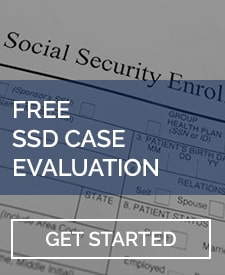As with any condition, disability is determined by severity. Psoriasis is a relatively common condition in which skin cells build up and form scales with itchy and dry patches. Psoriasis symptoms typically appear as small red bumps on the skin which eventually develop into red patches. These patches typically appear on elbows, knees and the lower back. This is a chronic condition that comes and goes. Flares from psoriasis are caused by T cells becoming active or other immune responses. While there is no specific cure for psoriasis, there are several treatments to ease the symptoms during flares.
How to Cope with Psoriasis Symptoms
Aside from medical treatment, there are a few things you can do to help alleviate psoriasis, such as to eat a healthy diet, avoid smoking and alcohol, decrease stress, stay out of the sun, and apply lotion. The most common way to treat psoriasis is by visiting a dermatologist. This doctor will prescribe a type of medication and likely a topical ointment as well. If you are suffering from a severe form of psoriasis with constant flare-ups, you may likely struggle with working. During flare-ups, individuals experience an extremely painful rash with constant itching and burning sensations. These flare-up events can be quite debilitating for psoriasis sufferers.
When Psoriasis Becomes Psoriatic Arthritis

If you suffer from psoriatic arthritis or severe psoriasis symptoms and find it difficult to maintain a full-time job, you should consider applying for social security disability benefits. These benefits provide a monthly monetary check along with health insurance. To receive these benefits, you must prove you meet the social security administration’s definition of disability. You may be found disabled if you are able to show your flare-ups from either condition prevent you from performing full-time work, 8 hours a day, 5 days a week. If you can prove you would be absent 3 days per month, you will likely qualify for disability benefits.
Applying for Social Security Disability
The social security disability application process can be done on the phone, in person, or on the internet. However, if you are going to apply for these benefits, it is highly recommended you first obtain help from an experienced disability attorney. While you may believe your disability is obvious, there is a multitude of regulations and exceptions to the rules. Having the assistance of an experienced attorney will help guide you through the application process more quickly and smoothly. For example, did you know you are able to work part-time while applying for disability benefits? Or, did you know it is important to obtain statements from your treating doctors about your conditions and limitations? It’s likely you didn’t know the answers to either question, which is why it is recommended you obtain assistance from an experienced disability attorney.
The social security administration (SSA) will evaluate your claim using a five-step process. The first step is determining whether or not you are engaging in substantial gainful activity. Meaning, are you working? And, if so, how much are you earning? The second step evaluates the severity of your condition. The third step considers whether or not you meet one of the SSA’s listed impairments. The conditions on the SSA list are thought to be automatically disabling if proved through medical evidence. In terms of psoriasis and psoriatic arthritis, the SSA will consider listing 8.05 and listing 14.09. Again, this is another reason to obtain assistance from an attorney. Your attorney will know the medical evidence needed to support your condition’s ability to meet or equal one of these listings.
Meeting a Listing

The second listing to be considered, 14.09, is for inflammatory arthritis. While this listing is not specifically directed at psoriatic arthritis, this condition can be proven under this listing. You must show persistent inflammation or deformity of one weight-bearing joint or two upper-extremity joints. Or, you must prove repeated manifestations of inflammatory arthritis with at least two symptoms or signs such as severe fatigue, fever, malaise, or involuntary weight loss, along with marked limitations in activities of daily living, social functioning, or completing tasks.
Determining Residual Functional Capacity
If you are unable to prove you meet either listing through your medical treatment, the next consideration would be to determine your residual functional capacity (RFC). Your RFC is the maximum you are physically and/or mentally capable of doing. Once your RFC is determined, the SSA will consider whether or not your RFC allows for you to perform your past relevant work. Past relevant work is defined as the work you have performed in the past fifteen years. This work must have been performed long enough to learn it and you must have earned substantial gainful activity for the position. If your RFC is determined to rule out your past work, the final consideration will be whether or not there is other work you could perform in the national economy. Your age will have a major impact on your ability to learn new work. According to the SSA, the older you are, the less likely you will be able to be retrained to perform other work. Generally, once you reach the age of 50, the likelihood of you being retrained for other work begins to decrease dramatically.
If you are suffering from psoriatic arthritis and/or severe psoriasis symptoms preventing you from working, you should apply for social security disability benefits as soon as possible. Enlisting the help of an experienced social security disability attorney will ensure receipt of those benefits as soon as possible.





